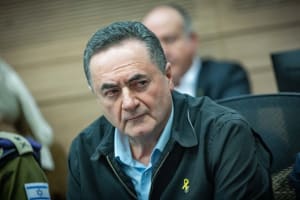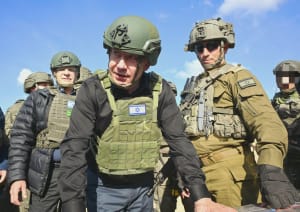UN Security Council approves US resolution calling for a ceasefire in Gaza and hostage release
Hamas welcomes the resolution, Israeli officials define it as ‘problematic’

The United Nations Security Council (UNSC) passed a resolution on Monday calling for a ceasefire in Gaza in exchange for the release of hostages.
The resolution was drafted by the United States, based on the outline put forward by President Joe Biden in a televised speech in late May, dubbed ‘Three-phase proposal for durable peace in the Middle East.’
The resolution passed with 14 member-states voting in favor and none against. Russia abstained, in a de facto support of the measure. According to Israeli media reports, the U.S. likely changed the original draft of the resolution to avoid a veto by Russia or China. The adopted text urges both Israel and Hamas to "fully implement its terms without delay and without condition."
Hamas reportedly welcomed the UNSC decision, saying in an official statement that the group is “willing to cooperate with mediators regarding the implementation of the ceasefire proposal’s terms.”
However, Israeli officials defined the resolution as “problematic,” according to YNET News, and reportedly told the U.S. administration the resolution does not accurately reflect its offer for a hostage release deal.
The Biden administration is pushing for an immediate and complete end to the war in Gaza in exchange for a gradual release of all hostages. The deal would also include the release of Palestinian prisoners in Israeli jails. Yet, Jerusalem insists that a permanent ceasefire will only take place after Hamas is no longer in control of the Gaza Strip.
Israeli media outlets quoted an unnamed Israeli official claiming that various reports about Israel’s offered outline are “misleading.”
“Our outline determines that beginning no later than day 16 of the deal, Israel will present its conditions for ending the war in indirect negotiation,” the official asserted. “These conditions haven’t changed: To dismantle Hamas’s military and governing capabilities, to bring back all of our hostages and ensure that Gaza will never pose a threat to Israel again. Claims that Israel has agreed to a permanent ceasefire without our conditions being met are incorrect.”
Nevertheless, the text of the American resolution stated that Israel had already accepted the ceasefire terms. It also reiterated the United Nations’ commitment to a two-state solution to the conflict and rejected "any attempt at demographic or territorial change in the Gaza Strip, including any actions that reduce the territory of Gaza."
This principle goes against Prime Minister Benjamin Netanyahu’s plan for Gaza the day after the war with Hamas. Netanyahu believes Israel will have to maintain “security responsibility” over the Gaza Strip and a security buffer zone along the border to guarantee it can operate against a potential resurgence of terrorism.
After the UNSC vote, U.S. Ambassador to the UN Linda Thomas-Greenfield said the Security Council "voted for peace."
“The cease-fire deal would pave the way toward an enduring cessation of hostilities and a better future for all. This is an opportunity to chart a different course,” she said.
In a rare move, Israel’s Ambassador to the UN Gilad Erdan did not speak during the UNSC session. Local media suggested that Erdan chose not to appear and sent a substitute in his place to avoid highlighting evident gaps between Jerusalem and Washington.

The All Israel News Staff is a team of journalists in Israel.
You might also like to read this:















